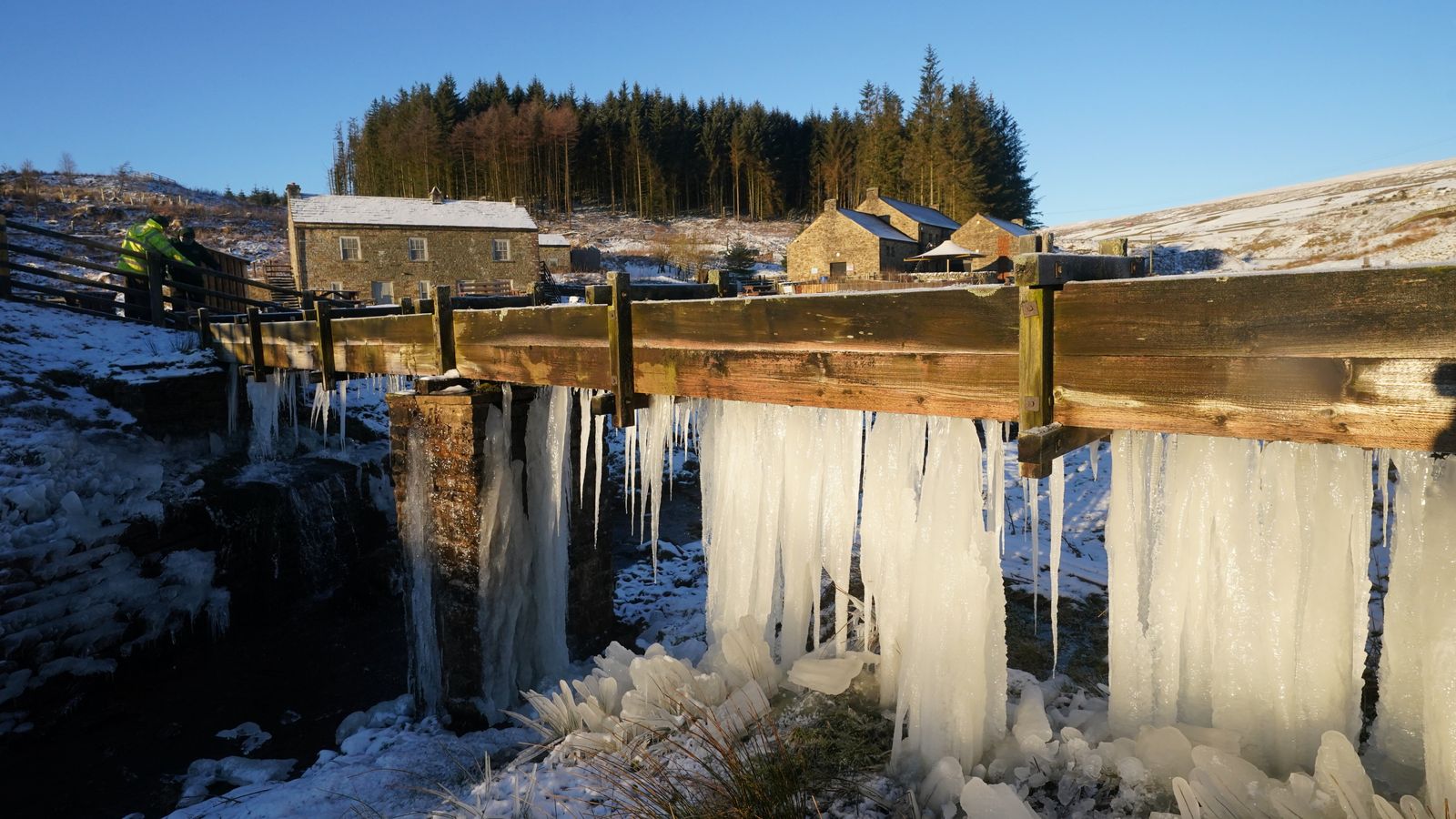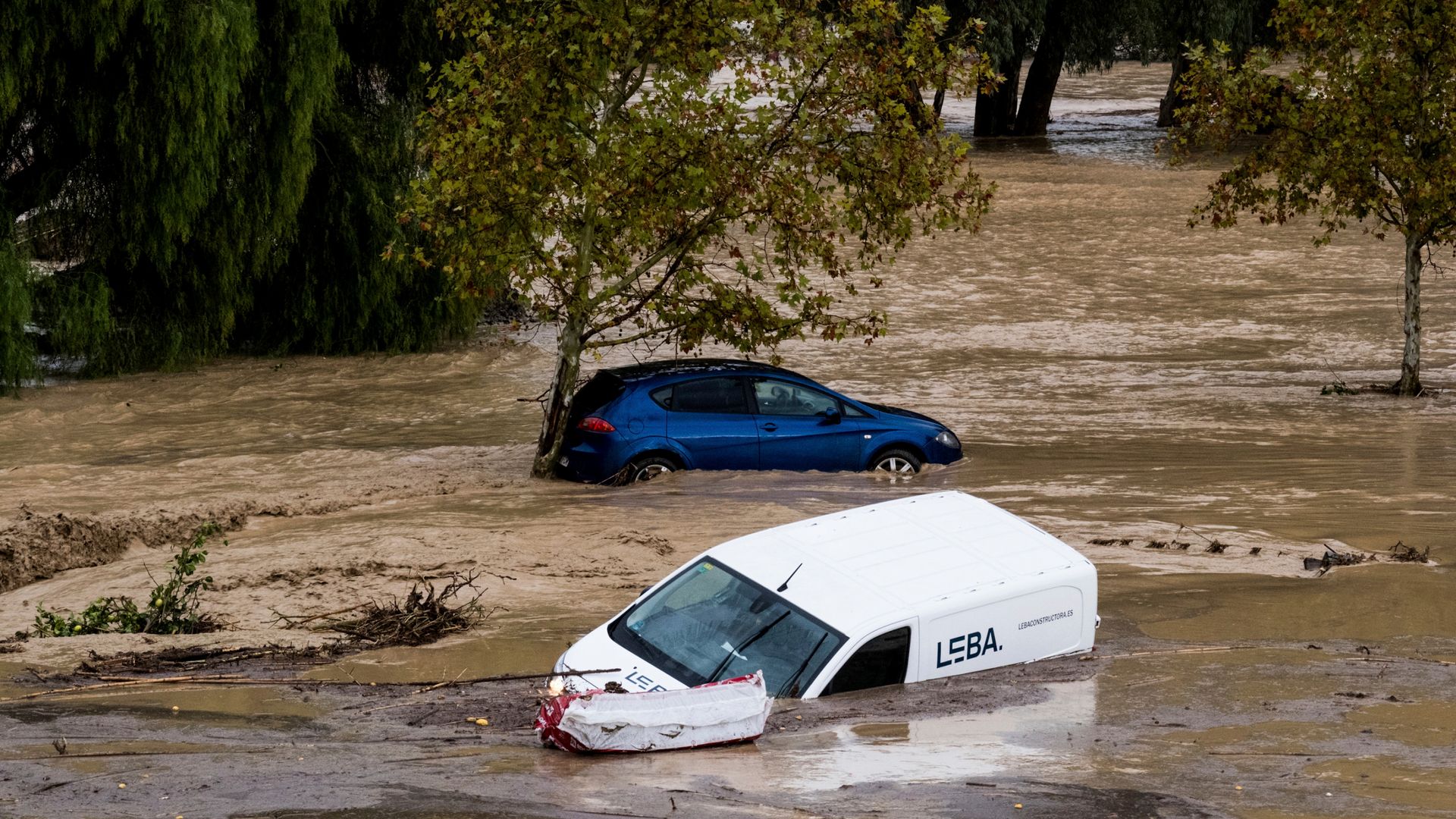Temperatures could plummet to -18C in Scotland one day after the coldest night of the year so far – as the cold snap could make way for storms this weekend.
An amber alert – warning of power cuts and travel disruption – is among widespread weather warnings for snow and ice and is in place until 6pm on Thursday in northern Scotland.
It could see the mercury drop to -15C or -18C tonight, according to Sky News meteorologist Kirsty McCabe.
Get the five-day forecast where you are
“This will likely be over the Scottish Glens, but still, that’s the coldest it’s been since about 2010, “she said.
A yellow warning for snow and ice, which is less severe than the amber equivalent, covers swathes of the eastern coast of England from Newcastle down to Norfolk, as well as Scotland, Northern Ireland and Wales.
The Met Office amber warning forecasts some areas could see an extra 15-20cm of snow, meaning power cuts are likely and more remote communities are at risk of being cut off.
Hundreds of schools shut in Scotland on Wednesday and motorists are advised to drive with care.
But “much milder air” will move in from the South West by the end of the week “that will gradually filter in as we go through Friday”, McCabe adds.
“We’re going to see much wetter and windier – and possibly even stormy – conditions this weekend,” she said.
“For now, though, it’s the snow and the ice, possibly with strong northerly winds and heavy snow in the far north of Scotland and the northern isles.
“There could be some blizzard conditions, some drifting snow, and for all of us, still, bitterly, bitterly cold.”
Read more:
What are your rights over cold workplace temperatures?
Pictures: Snowy scenes blanket the UK
Be the first to get Breaking News
Install the Sky News app for free
That stormy weather is forecast for Sunday, with a yellow warning for wind covering all of Scotland, Wales, Northern Ireland and large parts of England, including the South West, West Midlands and North West.
“The cold isn’t lasting right to the end of the week, but we have a very different type of potentially disruptive weather arriving,” the spokeswoman for the Met Office said.











